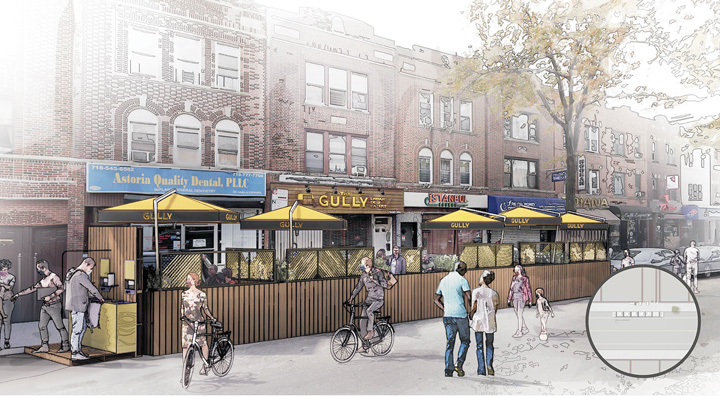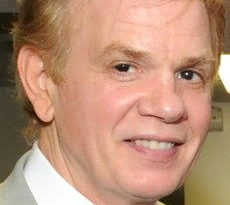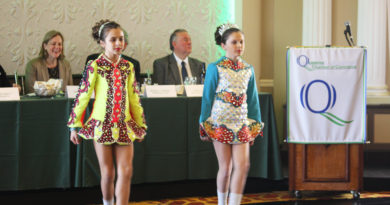CITY CLEARING WAY FOR OUTDOOR DINING
The mayor said restaurants will be able to convert parking spaces in order to use the roadbed alongside the curb for dine-in service, and there will be a simple process to register and self-certify online. Restaurants must ensure seating is accessible, bus stops or fire hydrants are not blocked, and seating is located away from intersections.
Restaurants must provide their own vertical barricades, planters, tables, and chairs. Johnson emphasized the need to be creative and adaptive to the city’s unique streetscape, which varies between neighborhoods. He proposed the use of both public and private spaces, such as adjacent parking lots, as options for outdoor dining.
“We know that a one-size-fits-all solution won’t work,” he explained, advocating for a collective approach that incorporates suggestions from local business owners and other community leaders.
Manhattan architect David Rockwell is working pro-bono with the NYC Hospitality Alliance to provide an adaptable, scalable and affordable template for eateries to use as a model for utilizing outdoor space. His firm, the Rockwell Group, is making these designs available for restaurants with sidewalk permits through its website.
Though the reopening of restaurants and bars would not occur until the city reaches the criteria to initiate “Phase Three” of the governor’s reopening protocols, the City Council urged the De Blasio administration not to hesitate when it comes to reimagining street space, an initiative it says was not a priority in the past.
“When it comes to open space and streets in general, I personally don’t have the confidence that the mayor is really an outside-the-box thinker,” said Councilman Anotnio Reynoso, a co-sponsor on the outdoor dining legislation. “It’s important for us to initiate this conversation and impose guidelines.”
Timing is everything for so many struggling restaurants, and a long list of logistical details still needs to be addressed if the City Council’s bill is passed.
According to Queens Together co-founders Jaime-Faye Bean and Jonathan Forgash, a number of food service establishments in Sunnyside and Astoria are eager to explore outdoor dining. Concerns remain, however, when it comes to division of responsibility for potentially shared seating areas and the risk for costly fines that may come with new safety regulations.
“The new world we’re living in should not include piling on more fees to restaurants at a time when they need every penny most to maintain being in the neighborhood,” said Forgash, a former chef and organizer of the Queens Dinner Club.
Provisions enacted by the council’s proposed legislation would expire on October 31, or when social distancing guidelines are lifted. But Bean is hoping to see many of the recent measures taken to aid of local restaurants, including caps on third-party delivery charges and waiving sidewalk cafe fees through 202, will become permanent changes going forward.
“I would like to see a lot of what has been discussed outside the frame of a state of emergency,” explained the Sunnyside Shines BID executive director, pointing out the deep holes in the city’s small business ecosystem that have been blatantly exposed amid the pandemic. “For me to correct course for a few months and then go back to the normal way,” Bean continued, “that’s not going to work.”




